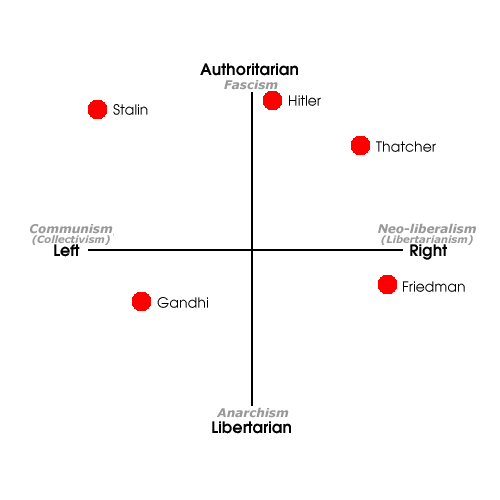 Originally posted by jolepp
Originally posted by jolepp 
Around Marx's (founding father of communism I'd say) time there were others in favour of socialism who thought reforming the existing order would be the way to go.
Not really...socialism was revolutionary, it was much more marxian than today, it believe in class struggle and in the inevitable revolution and rise of the proletariat as central class in the final phase of the dialectic conflict between bourgeoisie and proletariat. Socialist believed in mass revolution and the overthrowing of the bourgeois strucures. The real root of today's social democratic parties lies in the conservative derive of the parties elites. As studied by Mitchels and formulated in his Steel law, the elites used the hierarchical strucures of the socialist parties to impose their, more conservative, line over the bases of said parties. That is when properly "comunist" parties were born, comunism denounced the "revisionism" of social-democracy, it's straying from the correct political line and it's turning into bourgeois parties.
Socialism was revolutionary and today self-called socialism is no longer conected to the original one, it keeps some mythical ties, some figures and emotional links but it has no longer the same values and ideology it's roots are not proper socialism, but the revision of it done by people like Bernstein and other party leaders.
Because of how things were at the time most of the political tendencies that had their social base in the proletariat were revolutionary too: just as the blanquists, anarchists (proudhonian, bakuninist, individualists or comunists), even part of the "utopian" socialists that coexisted with the former...
As to fascism, speaking rigurously, it is a political and social movement of the 20s, where only italian fascists and National-socialists fit entirely...Spain was a tad more complex, being an authoritarian regime where various cliques coexisted and fighted over power (ranging from ultracatholics, almost Ancien-regime-like traditionalist like the carlistas, fascists from the falange, conservatives...), so the spanish regime was very different things depending on who was in power and wich time we consider.
I think that it would be much more usefull to abandon those old words with so many ties and emotional charge of the past to describe acurately the new phenomenons.
In western democracies i think that using authoritarian and totalitarian trends to describe some of the things that have appeared with the securitarian speech is better.
The usage of fear as a way to shore up power and a precise set of policies is an authoritarian derive and when the origin of the threat is identified as a particular ideology promoted by a social sector (just as with the criminalization of the izquierda abertzale here in spain) we are sunking in the totalitarian logics, and drifting away from the "liberal" principles that are suposed to be the base of the legitimacy of these states.
I think it's important to partially abandon the usage of the word fascism to better desccribe the new "extreme-right" parties that use a "democratic" language bundled with some xenophobic or racial distinctions and the revindication of the importance nationalism. They are different from old-school fascism since this had an explicit rejection of the liberal and "democratic" values in conjunction with a cult of violence while the new extreme-right has a more "politically correct" speech and in a way they are more dangerous, because they are more subtle and insidious.









 ...unless the economic climate and this level of globalization start to be unsustainable due to the rising costs of fuel and those derived of environmental degradation.
...unless the economic climate and this level of globalization start to be unsustainable due to the rising costs of fuel and those derived of environmental degradation.





 Post #13 by shooz
Post #13 by shooz








